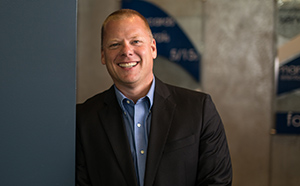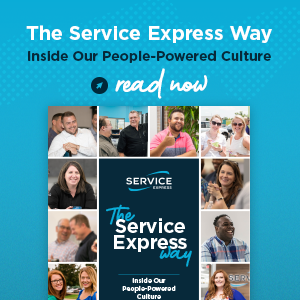Success is often a result of hard work. But it’s important to recognize that failure, too, is often a result of hard work. As leaders, we must recognize the difference between working hard and working smart; not just for ourselves, but for those we lead.
Here’s a simple truth: working hard on the wrong things does not make one successful.
Too many people work hard at making sure that they’re doing things right, but fail to consider first whether they’re doing the right things.
Here are a few signs that one may be falling into that rut:
- They work hard throughout the day, but at the end of the day wonder if what they’ve done really made all that much of a difference.
- They work hard but don’t feel like they get the recognition that they deserve.
- They work tirelessly but it rarely feels like they accomplish much of anything.
- Their task list is endless and they often feel overwhelmed.
If you can identify, take solace in the knowledge that it is entirely our doing, and that means that it can be entirely our undoing.
Here are a few actions that one can take now to begin to turn things around.
Plan
It sounds so simple but it may be the single greatest deficiency in the workplace today. We live in an attention-seeking world where cell phone chirps, email alerts, social media posts, and people all vie for our attention.
If we don’t plan our time, someone else will, and when that happens, we live life in a state of constant reaction. Planning our time allows us to focus our attention on the important, not just on the urgent.
It can begin with a calendar, a day planner or a task manager. By prioritizing our work then blocking out time for those things that are most important to us, we begin to guard our time for activities that have a high impact. Work/ life balance means that we must also be intentional about planning time for our families and for our relationships then sticking to the plan.
Share Priorities
Our teams cannot possibly know what our top priorities are unless we share them. I share my Outlook calendar with my executive team. By doing so, I put both parties in a position to plan rather than to react. If they need something from me, they have a tool to plan their time around my priorities.
At SEI, individual ROIs and 5/15s are shared across the organization on our intranet. It’s a great way to help teams align their goals and for everyone to see what our top priorities are.
Leaders who care about results appreciate an employee who takes a proactive approach to sharing their schedule and communicating their priorities.
Delegate
If there is a task that doesn’t fall within a particular area of strength, or that will divert focus from something that has a greater impact, we should turn it over to someone who is better suited to take care of it. When we try to do everything our self, it’s a sure-fire way to burn out.
Create a not-to-do-list
Energy spent doing tasks that have little impact is a recipe for failure. It’s easy to get caught up in routine tasks that minimize our ability. We should consider which tasks we spend time on regularly and then weigh their impact. If the impact is minimal, or if they distract us from things that will have a greater impact, we should consider whether there’s a way to automate or delegate them. If not, we should consider whether we can remove them from our to-do list altogether.
Quit
Too often the attitude that we must work hard prevents us from quitting a task when we realize that the outcome isn’t going to have the impact we had anticipated. There are times when it’s ok to quit.
When Steve Jobs created the LISA computer, he spent a significant amount of time and resources developing it. When he realized that it wasn’t going to have the impact on personal computing that he had envisioned, he quit and created a different computer- the Mac. Apple continued to develop LISA, while Jobs focused his attention on the Mac. In the end, Apple dumped hundreds of thousands of LISA computers in a Utah landfill while the Mac went on to revolutionize personal computing. Jobs succeeded because he decided to “quit” the LISA project. There is no shame in trying.
The effects of working hard can be profound: long hours, stress, anxiety, strained relationships, an unhealthy work/life balance, burnout, decreased productivity and dissatisfaction with work.
The benefits of working smart are just as profound: better health, often more money, a great work/life balance, more energy, a better self-esteem, exceptional productivity, and satisfaction with work.
In what ways have you learned to work smart, instead of just working hard?

